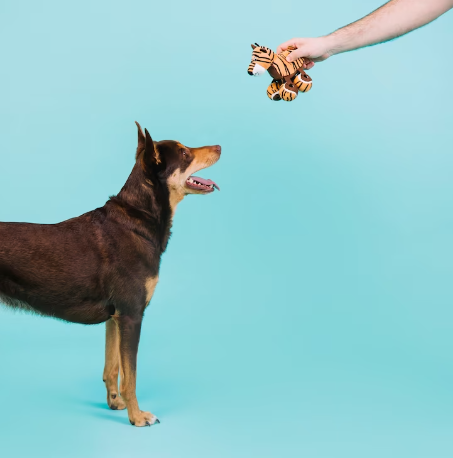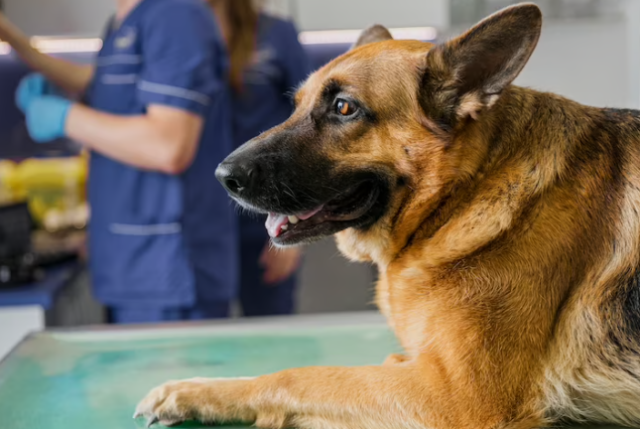Introduction
German Shepherds are well-liked, intelligent dogs who need a healthy diet to flourish. It might be difficult to choose the best dog food for your German Shepherd. In this post, we’ll look at some of the key factors to consider when selecting the best dog food for German Shepherds, such as their unique nutritional needs, the quality of the ingredients, and certain health concerns. By the end, you’ll have the information you need to make an informed choice and provide your German Shepherd with the nutrients they require to live a healthy and active life.
Understanding the Dietary Needs of German Shepherds
German Shepherds are medium to large-sized dogs with high energy levels. They require a diet rich in proteins, healthy fats, and essential nutrients to support their active lifestyle. When selecting dog food for German Shepherds, it is crucial to prioritize high-quality animal proteins as the main ingredient. Look for dog food formulas that contain real meat sources such as chicken, beef, or fish. These proteins provide the necessary amino acids for muscle development and maintenance.
Additionally, German Shepherds benefit from a diet that includes healthy fats like omega-3 and omega-6 fatty acids. These fats promote healthy skin and coat, support brain function, and aid in joint health. Look for dog food that includes ingredients like salmon oil or flaxseed to provide these essential fatty acids.
Choosing High-Quality Ingredients
The quality of ingredients in dog food plays a significant role in determining its nutritional value. When evaluating dog food options for your German Shepherd, it’s essential to consider the source and processing methods of the ingredients. Opt for dog food brands that use whole, natural ingredients and avoid artificial additives, fillers, and by-products.
Aim for dog food formulas that include whole grains, fruits, and vegetables to provide a range of vitamins, minerals, and antioxidants. These ingredients contribute to overall health and help support the immune system of your German Shepherd.
Tailoring the Diet to Specific Health Concerns
German Shepherds may be prone to certain health issues, such as hip dysplasia, digestive sensitivities, and allergies. If your German Shepherd has any specific health concerns, it’s important to choose a dog food that addresses these issues.
For example, for German Shepherds with joint problems like hip dysplasia, consider dog food formulas that contain glucosamine and chondroitin. These ingredients support joint health and can help alleviate discomfort.
If your German Shepherd has a sensitive stomach or allergies, look for dog food labeled as “limited ingredient” or “grain-free.” These formulas often exclude common allergens and are easier to digest for dogs with sensitivities.
Comparing Top Dog Food for German Shepherds
To assist you in your search for the best dog food for your German Shepherd, here is a comparison table outlining some top dog food brands known for their quality and suitability for German Shepherds:
Please note that provided just for illustrative reasons and that before making any dietary modifications for your German Shepherd, it is crucial to read product labels and check with your veterinarian.
Conclusion
The first step in giving your German Shepherd the nourishment they require to flourish is to select the best dog food. You may make a choice that promotes their general well-being by taking into account their particular dietary requirements, the quality of the ingredients, and any relevant health issues.

To prevent intestinal distress, always introduce dietary changes gradually. To be sure you’re selecting the right thing for your German Shepherd’s unique requirements, speak with your veterinarian. You can contribute to your dog’s long-term health and pleasure by feeding them the proper diet.
FAQs
Q1: How much should I feed my German Shepherd?
The amount of food depends on factors like age, activity level, and metabolism. Follow the feeding guidelines provided by the dog food brand and monitor your dog's weight and condition. Adjust the portion sizes accordingly.
Q2: Can I feed my German Shepherd homemade food instead?
While homemade food can be an option, it's essential to ensure a balanced and complete diet. Consult with a veterinary nutritionist to formulate a homemade diet that meets your German Shepherd's specific nutritional requirements.
Q3: Are there any ingredients I should avoid in dog food for German Shepherds?
Avoid dog food that contains artificial additives, by-products, and fillers. Additionally, if your German Shepherd has specific allergies or sensitivities, avoid ingredients they are known to react to.
Q4: Should I choose dry or wet dog food for my German Shepherd?
Both dry and wet dog food can be suitable for German Shepherds. However, dry kibble may be more convenient and beneficial for their dental health, as it helps reduce plaque and tartar buildup.
Q5: When should I transition my German Shepherd from puppy to adult dog food?
The transition typically occurs around 12 to 18 months of age, depending on your German Shepherd's growth and development. Consult with your veterinarian to determine the best time for this transition.
Read also
- Find Your Perfect Match: Discovering the Ideal Target Dog Breed
- Chihuahua: Breed Info, Characteristics, Temperament, Lifespan, Grooming, Training
- Attention Dog Lovers: Japanese Breeds Unleashed!
- Dog Food Storage Container: Keeping Your Pet’s Meals Fresh and Organized
- Best Dog Food for Goldendoodles: Your Guide to Optimal Nutrition
- Dog Food Storage Container 40 lbs: Keeping Your Pet’s Nutrition Fresh and Secure
- Effective Strategies to Stop a Dog from Jumping Up | Expert Advice
- Vet Approved Homemade Dog Food Recipes for Kidney Disease
- Unleash the Best Dog Food for Chihuahuas | A Guide for Optimal Nutrition
- Unveiling the Alluring Sandlot Dog Breed: A Perfect Blend of Charm and Playfulness
- Top 10 Best Dog Brushes for Shedding and Grooming | Comparison & Reviews
- Dog Birthday Toys: Celebrate with Tail-Wagging Joy
- Best Dog Food for Labrador Retrievers: Providing Optimal Nutrition
- Best Dog Food for Golden Retrievers: A Complete Guide
- A Convenient Solution for Dog Food Storage Container 50 lbs of Kibble
- The Ultimate Guide: How to Give a Dog a Pill When They’re Not Eating
- Best Dog Food for Older Dogs: Nourishing Your Senior Canine Companion
- Discover the Fascinating Characteristics of the Walter Dog Breed
- Discover the Versatile Mountain Cur Dog Breed | All You Need to Know
- Choosing the Best Dog Food for Your Husky Puppy: Ultimate Guide







